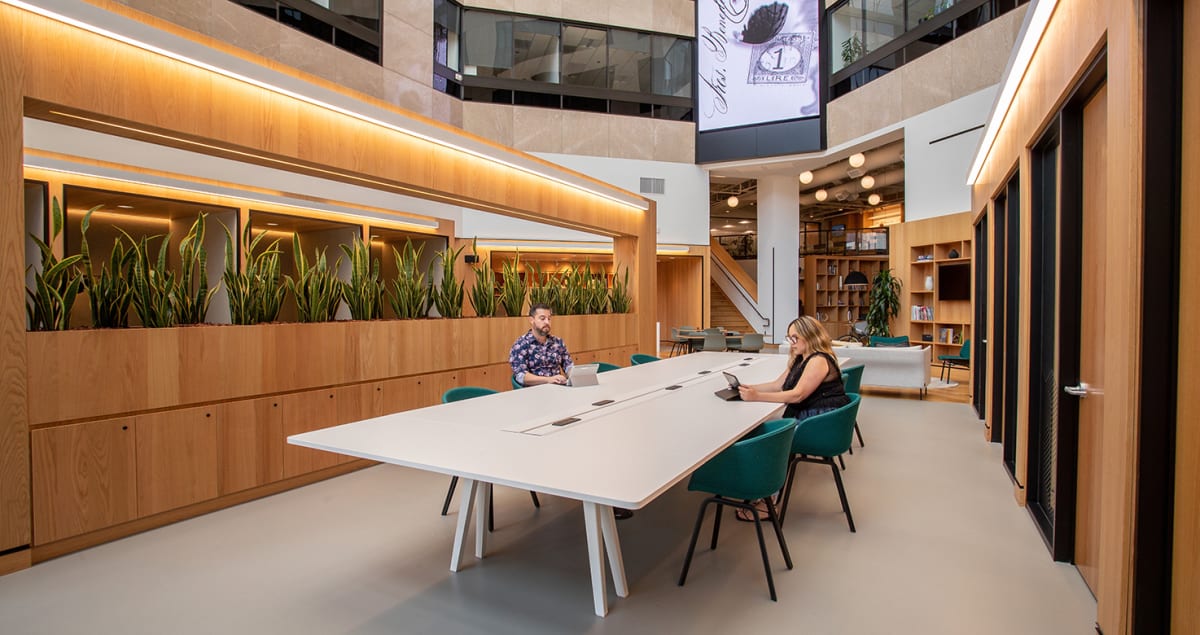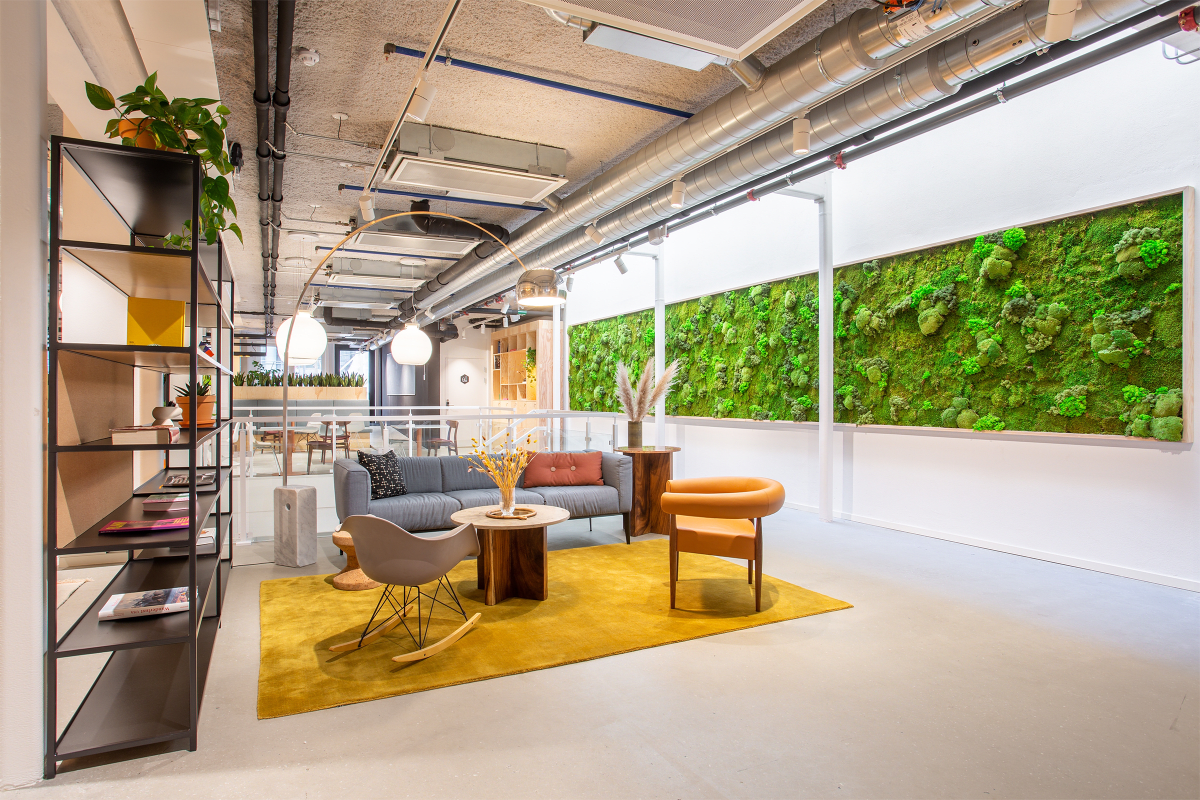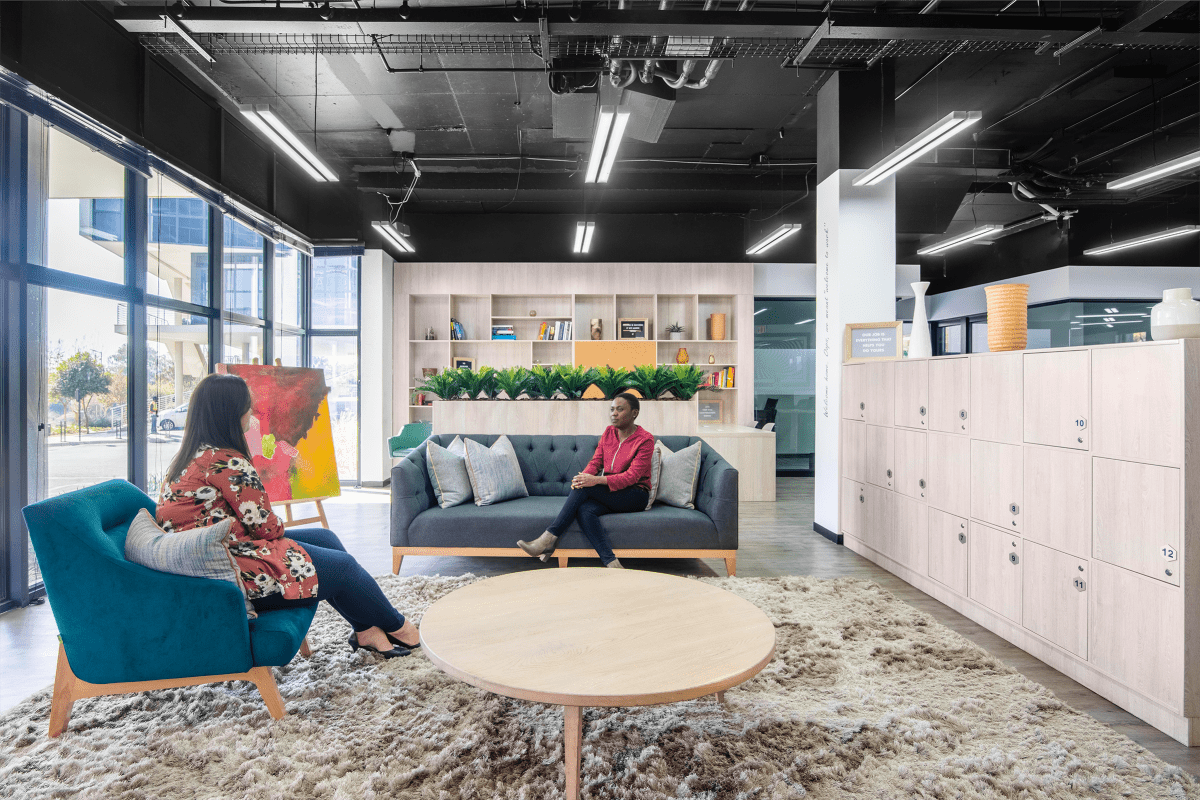As vaccination programmes around the world help businesses return to growth, it’s clearer than ever that hybrid working is here to stay.
As Covid-19 restrictions are lifted around the globe and vaccination rates increase, many businesses are breathing powerful sighs of relief.
Returns to growth have been welcomed in many sectors, with tech giants such as Google posting record results. Earnings in the USA rose in the second quarter of the year, with 88% of S&P 500 companies reporting positive results. Meanwhile, the UK’s beleaguered hospitality industry - one of the sectors hit hardest by the pandemic - was responsible for an impressive 40% of economic growth between the first and second quarters of 2021.
Amid these green shoots, the growth in popularity of hybrid working is evident - and the model seems more certain than ever to form part of firms’ long-term strategies.
The rise and rise of hybrid
The shift to a hub-and-spoke approach, which empowers employees to split their time between the corporate HQ, home and a location near home, has led to a surge in demand for flexible workspace in locations around the world. “The significant move to hybrid working has created unprecedented demand for our flexible work products,” says Mark Dixon, Founder and CEO of IWG.
Half-year results for the flexible workspace provider showed that enquiries and customer retention rates had returned to pre-pandemic levels. Meanwhile franchise partnerships have grown 350% across the period, in comparison with the previous year.
Global enterprises including Google, BP, Barclays and Microsoft have already signalled their commitment to hybrid working for the long-term. IWG has added 900 new clients to its worldwide network of flexspaces during the first half of the year. Altogether, 2 million new users have been able to access IWG flexible workspaces so far in 2021 - the largest increase in the firm’s 30+ year history.
What was an evolution towards hybrid working has gathered pace as a result of Covid-19, according to IWG Founder and CEO Mark Dixon. “The pandemic has certainly had a dramatic and permanent effect,” he argues, “but it’s merely accelerated a trend that’s been underway for several years.”
Far from forcing employees back to Monday-Friday routines that require arduous commutes and undermine work-life balance, the re-opening of offices around the world is inspiring companies to think creatively about their real-estate needs. After long periods of forced remote working, businesses understand the advantages of a hybrid approach for people, profits and the planet.
Advantages for employees
For employees, having the flexibility to spend part of their working week at home or at a local flexible workspace can offer significant wellbeing benefits. “Commuting is the key enemy,” Dixon recently told the Qatar Economic Forum. “The problem is the time it takes for an individual to leave their home and arrive at a place of work.”
Long periods of lockdown have made clear that this time could be better spent on productive work tasks, or on bolstering mental and emotional health by connecting with family and friends, exercising and preparing healthy meals. Altogether, says Dixon, “herding people to the office is looking increasingly obsolete, expensive and inconvenient.”
Increasingly, the hybrid approach will also become key to recruiting and retaining top talent. Prospective employees see the opportunity to work flexibly as a key benefit, and according to the Office for National Statistics 85% of workers who were based at home during Covid-19 would prefer to work hybrid from now on, rather than go back to the office full time.
Advantages for employers
What’s more, happier employees who have the freedom to work from wherever suits them best tend to be more engaged, productive and loyal - and this promises a positive impact on profits.
A study by EY shows that companies can save about $11,000 for each employee that works in a hybrid manner, while CIPD research shows that - in the majority of cases - remote working leads to no change in an employee’s productivity. Meanwhile, Accenture has found that 63% of organisations with high-growth characteristics have enabled ‘productivity anywhere’ workforce models. Unsurprisingly, 69% of negative or no-growth companies are still focused on where people are going to work, rather than what they’re actually doing.
Potential cost-savings on real estate are another significant advantage for firms that embrace hybrid working - as is the broadening of the talent pool when the time comes to add new team members. No longer hamstrung by the need to employ an individual who lives close to the corporate HQ, HR directors and managers are empowered to look for true, best-fit candidates.
Advantages for the environment
Finally, companies’ own environmental goals are a key driver of the rise of hybrid working models.
The reduction in commuting that goes hand in hand with the hybrid approach can have a huge effect, says Dixon. “Companies of all sizes see addressing the need for their people to commute to work as the single greatest contribution they can make to reducing their carbon footprint.”
What’s more, hybrid working entails a more efficient use of office building. These are significant consumers of energy and also require huge amounts of energy to construct.
Into the future
“Since the announcement of easing restrictions in March, demand for more distributed working has increased our sales in many of the satellite towns and cities outside of London,” explains Dixon. “We have seen companies across the world begin to shift their operations to the suburbs and towns where their employees actually live, and during the past two years IWG has opened almost all its new centres in non-city centre environments.”
All in all, Dixon argues, pushing people to do a long journey every day “is looking increasingly obsolete, expensive and inconvenient”. However, the new world of work promises better things for employees, employers and the environment alike.
Dixon is positive about the role IWG can play in helping businesses navigate the new normal – and about the firm’s continuing recovery. “The fundamental shift in the way people work is clearly a positive tailwind for IWG over the medium to longer term,” he says. “We are seeing increasing levels of interest from enterprises wishing to transform their working practices.”
IWG has been helping businesses and brokers design corporate flexspace solutions for the last 30 years. Find out how we can support you today.






